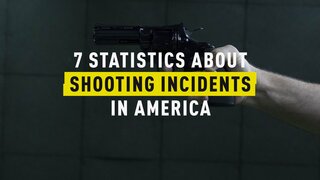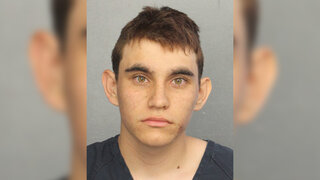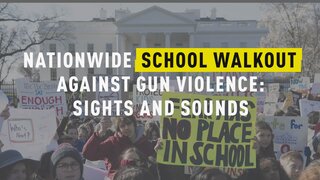Pulse Shooting In Orlando: What We Still Don't Know Two Years After Nightclub Attack
The attack left 49 people dead and set off a series of lawsuits and calls for stronger gun control.
Tuesday marks the two-year anniversary of the mass shooting at Orlando's Pulse nightclub, but the massacre still leaves unanswered questions — and unanswered calls for gun control reform.
The attack, in which a gunman killed 49 people and wounded 53 with an assault rifle and a handgun, was at the time the deadliest mass shooting in modern U.S. history. It set off a series of lawsuits and activist movements, some of which are still going today.
The former LGBT club is now an interim memorial filled with photographs of those who died, and survivors and relatives of victims are honoring the lives lost with a remembrance ceremony.
The trauma lingers, as do disputes about aspects of the attack. This is what we still don't know two years later:
Did Pulse owners and police mess up?
Only days before this anniversary, more than 35 survivors and relatives of victims filed a lawsuit against the Orlando Police Department and the city, which claims that officers didn’t do enough to stop gunman Omar Mateen.
“These defendants chose to allow the patrons of the club to be massacred while these defendants ensured only that they themselves were safe,” the federal lawsuit says. It says the city and officers violated the constitutional rights of those injured and killed in the shooting, and argues that the officers weren’t properly trained.
The Orlando Police Department said in a statement that "federal, state and local law enforcement officers and first responders put themselves in harm’s way to save as many lives as possible." Police killed Mateen in a shootout after an hours-long standoff.
Just one day after that lawsuit was filed, the same group filed another federal lawsuit, this time against Pulse owners Barbara and Rosario Poma in Orange County, Florida. It argues that their club didn’t have proper security and "did not take reasonable steps" to prevent guns from entering the establishment, according to Orlando Weekly.
“What if the Orlando Police officers who responded to the shooting were aggressive with a plan to rescue victims and hostages and kill the shooter?” Berto Capo, whose brother Luis Omar Ocasio-Capo died in the shooting, asked in a news conference, according to the Orlando Sentinel. “Would my brother still be alive?”
The Romas said in a statement that this week should focus on healing.
Will it result in stricter gun control?
Hundreds of demonstrators staged a rally in Orlando Monday, despite a downpour of rain, to call for stricter gun restrictions, Reuters reported. Survivors were joined by Marjory Stoneman Douglas High School students from Parkland, Florida, where 17 people were killed in the Valentine's Day shooting.
“Six hundred and twelve days,” said Brandon Wolf, a Pulse survivor and organizer of the rally. “That’s how long it took for Pulse headlines to become Parkland headlines. […] That’s how long it took for 49 lives lost to become 17 more. And in those 612 days, nothing changed.”
No gun laws changed after the shooting at Pulse. However, after the Parkland shooting, Florida Gov. Rick Scott signed a series of measures that included raising the legal minimum age required to purchase rifles and imposing a three-day waiting period on all gun sales.
Survivors of Pulse, Parkland and other mass shootings continue rallying the federal government for stronger gun laws.
Why did the shooter attack a gay club?
There was much debate over whether Mateen specifically targeted Pulse because it was a gay club. Members of the LGBT and Lantinx community members comprised the majority of the victims. The FBI even called the shooting a hate crime as well as a terror attack in 2016. At the time, Mateen's father told NBC News that his son became enraged after he spotted two men kissing in the past.
But the trial for Mateen's wife Noor Salman, who was accused of aiding his attack, cast doubt on the narrative that Mateen targeted gay people.
The prosecution stated that Mateen originally planned to attack Disney World by hiding a gun in a baby stroller.
"The target of that terrorist attack was not the Pulse nightclub," Assistant U.S. Attorney Sara Sweeney testified. "The target of the attack was Disney.”
It appears that Mateen changed his mind about Disney just hours before his deadly attack. Sweeney showed the court footage of him at Disney hours before the shooting. In the clip, Mateen appears to be spooked by police on the scene.
The trial revealed that Mateen searched on his phone for "downtown Orlando nightclubs" and chose Pulse. He also apparently asked a staff member there where all the women were.
Prosecutors ultimately did not deem the massacre a hate crime, and Salman was acquitted.
Could the shooting change the relationship between Florida's governor and LGBT community?
The LGBT community has condemned Florida Gov. Rick Scott for refusing to back measures that would prohibit discrimination on sexual orientation or gender identity in the wake of the shooting, according to Reuters.
“We asked the governor to protect us, and sign an executive order, saying that we would not be discriminated against in our workplace. We were met with excuses,” Wolf said at Monday’s rally.
He scrutinized Scott for never wearing a ribbon to honor the victims of the shooting. Wolf pointed out that Scott sported a Parkland ribbon several times. Parkland survivor David Hogg has also criticized Scott for not wearing the Pulse ribbon.
Scott has officially proclaimed June 12 "Pulse Remembrance Day” but Wolf and other advocates believe that the LGBT community deserves more.
"The terrorist attack at Pulse nightclub was an evil act of terror against our gay community, our Hispanic community, our entire state and our entire nation,” Scott said in a statement about the two-year anniversary. He visited the memorial at Pulse on Tuesday with his wife.
[Photos: Getty Images]































